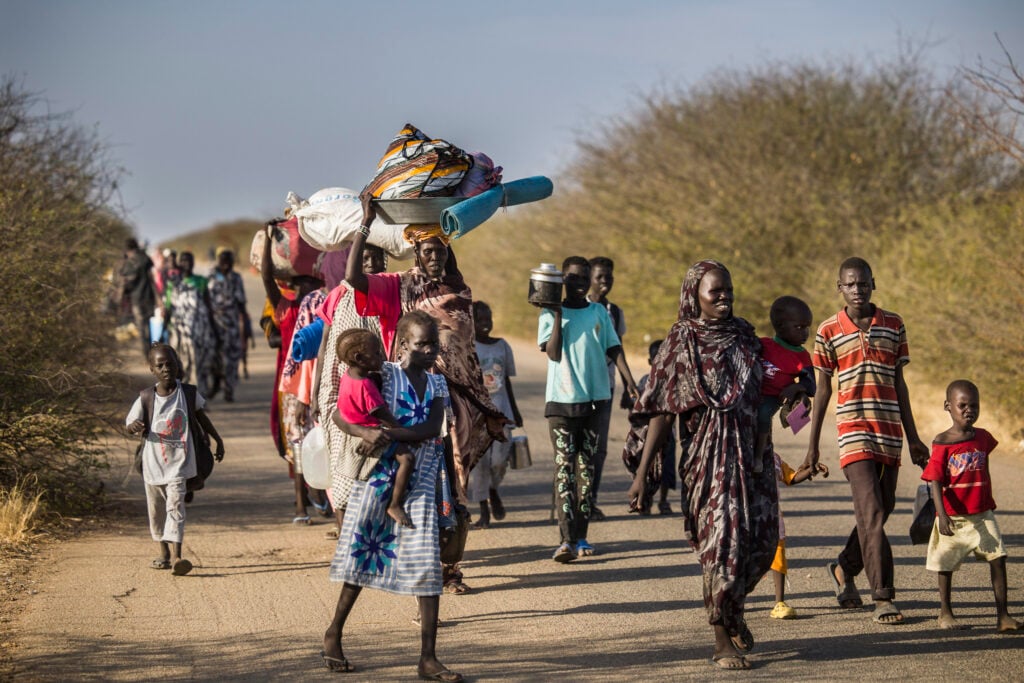As global attention focuses on the escalating conflict in Sudan, its southern neighbour is quietly slipping back into turmoil. Renewed violence, deepening political fractures, and a worsening economic crisis threaten to unravel hard-won progress. Cordaid urges the international community not to overlook South Sudan. Without immediate and sustained support, the country risks descending into deeper chaos.

The Revitalised Agreement on the Resolution of Conflict in South Sudan, signed in 2018, aimed to end the country’s civil war and lay the groundwork for democratic elections set for December 2025. However, recent developments indicate that the deal is close to collapsing.
The two principal signatories, President Salva Kiir and Vice President Riek Machar, are still at odds over key elements of the agreement, including security arrangements and power-sharing.
A Critical Juncture
Tom Otieno, Cordaid’s Country Director in South Sudan, warns that the deterioration of the peace process occurs at a critical juncture. ‘The return to crisis and the unravelling of the peace deal could not have come at a worse time,’ he states. ‘International funding has declined, and South Sudan is grappling with an economic meltdown triggered by the war in Sudan and long-standing structural weaknesses, including a heavy reliance on oil exports, limited agricultural productivity, and poor access to markets.’
South Sudan achieved independence from Sudan in 2011, gaining control over approximately 80% of the region’s oil reserves. However, the country depends on the Sudanese pipeline infrastructure to export crude oil. The ongoing conflict in Sudan has disrupted these exports, severing a vital source of revenue.
Refugees and Returnees
Meanwhile, the humanitarian crisis worsens. An influx of refugees fleeing the conflict in Sudan, along with South Sudanese returnees who had been living in the north, places immense pressure on already overstretched services and local resources.
In the country’s far north, where communities have endured years of flooding and violence, humanitarian organisations like Cordaid work to maintain essential services. In Bentiu, a region repeatedly affected by backflow from the River Nile, entire communities have been displaced.
Cordaid assists the Ministry of Health in ensuring that basic healthcare remains accessible even as an ongoing cholera outbreak stretches the limits of an already weak health system. Despite the challenging circumstances, health workers continue to provide essential care, supported by incentives and coordinated supply deliveries from Cordaid.
We Must Act
As South Sudan’s leaders struggle to salvage the peace deal, many are concerned that without international support and renewed political will, the country could collapse into full-scale conflict.
For those on the frontlines—humanitarian workers, community leaders, and ordinary families—the cost of failure would be measured not only in lost progress but also in many human lives, especially as the cholera outbreak continues to spread throughout the country.
The international community must not allow this to happen and needs to take decisive action to provide essential humanitarian assistance and support for the peace process.